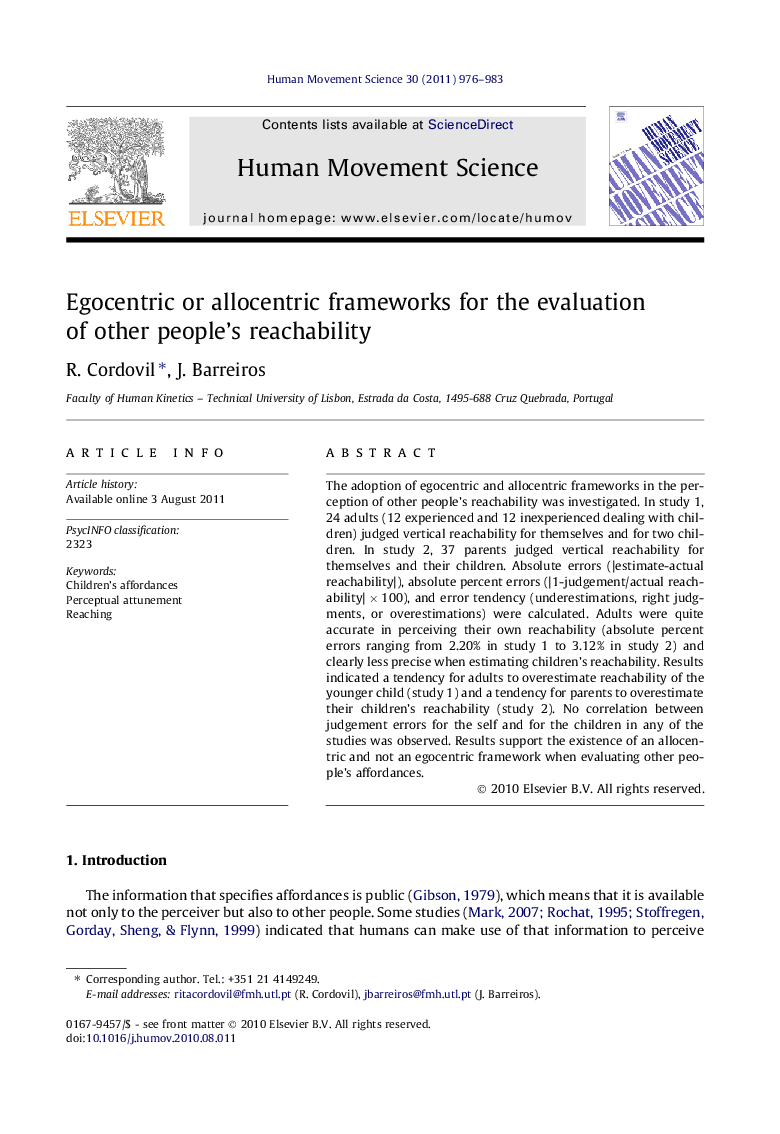| Article ID | Journal | Published Year | Pages | File Type |
|---|---|---|---|---|
| 928614 | Human Movement Science | 2011 | 8 Pages |
The adoption of egocentric and allocentric frameworks in the perception of other people’s reachability was investigated. In study 1, 24 adults (12 experienced and 12 inexperienced dealing with children) judged vertical reachability for themselves and for two children. In study 2, 37 parents judged vertical reachability for themselves and their children. Absolute errors (|estimate-actual reachability|), absolute percent errors (|1-judgement/actual reachability| × 100), and error tendency (underestimations, right judgments, or overestimations) were calculated. Adults were quite accurate in perceiving their own reachability (absolute percent errors ranging from 2.20% in study 1 to 3.12% in study 2) and clearly less precise when estimating children’s reachability. Results indicated a tendency for adults to overestimate reachability of the younger child (study 1) and a tendency for parents to overestimate their children’s reachability (study 2). No correlation between judgement errors for the self and for the children in any of the studies was observed. Results support the existence of an allocentric and not an egocentric framework when evaluating other people’s affordances.
